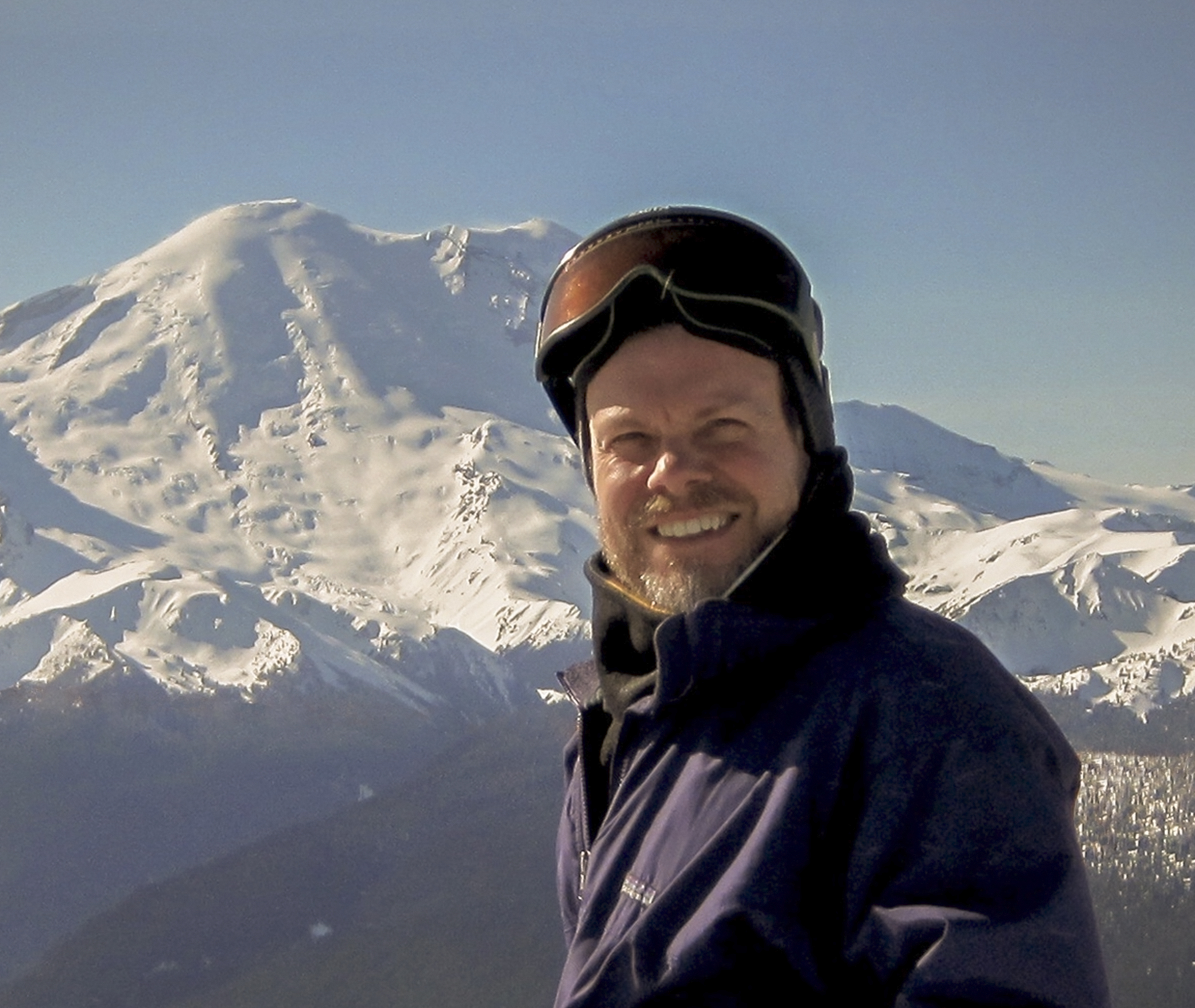
Photo provided by Ken Kramer.
The Lone Star Chapter of the Sierra Club lost a great friend, and the environment lost an innovative champion, with the unexpected passing of Ken Zarker in October. A survivor of two bouts with cancer, Ken succumbed to a sudden heart attack at 62 years of age. To his friends and family, the shock was compounded by the fact that Ken was an avid backpacker, cyclist, hiker, soccer player, and snow skier. Inspired by his 18-year-old son Ethan, Ken had even taken up snowboarding!
In addition to Ethan, Ken leaves behind his wife Denise and his other son Alex. He also leaves behind many good friends in Texas and across the country. But to our good fortune he left a legacy of service to the Lone Star Chapter and a series of accomplishments in pollution prevention, waste minimization, and “green chemistry,” among other contributions to environmental protection.
Beginning in 1982 with an internship in the Bureau of Solid Waste Management in the then Texas Department of Health, Ken spent over two decades at Texas state health and environmental agencies until circumstances at the Texas Commission on Environmental Quality (TCEQ) forced him to resign and move with his family to Washington State in early 2006. Our loss was Washington’s gain. Ken became the manager of the Washington State Department of Ecology’s pollution prevention and toxic reduction programs.
While working as a state official in Texas, Ken undertook initiatives that boosted industrial waste recycling and minimization, reduced the volume of toxics in industrial processes, worked with companies to produce pollution prevention plans, and enhanced public transparency about industry track records in reducing and managing toxics. He was a leader in changing the mindset away from just managing wastes at the “end-of-the-pipe” to revising practices and products to prevent or reduce wastes in the first place.
In fact, Ken was such a leader in pollution prevention that he eventually chaired the National Pollution Prevention Roundtable and was active in many other groups working nationally and internationally for better industrial practices and environmental sustainability. He was proud to have been part of the successful effort to renew and update the 1976 federal Toxic Substances Control Act and attended the 2016 White House ceremony where President Obama signed the revised Act into law.
In addition to his career accomplishments, Ken was a leader in the Lone Star Chapter. He first served as a part-time assistant to the Chapter state lobbying effort during the 1983 session of the Texas Legislature. Later he served on the Chapter Executive Committee and became the Chapter’s Finance & Administration Chair. In the latter capacity, he was the volunteer supervisor for Chapter staff and led Chapter fundraising activities. Ken truly helped build the modern Lone Star Chapter with a professional staff and an active fundraising program.
While active with the Chapter, Ken secured an Environmental Education Grant from the U.S. Environmental Protection Agency to produce a creative 25-minute video called “The Visitor.” Produced by Ken on behalf of the Lone Star Chapter, “The Visitor” was an entertaining story of a man from the future showing people in the late 20th century what they could do to protect the planet. The video was an example of Ken’s commitment to consumer and environmental education and his belief that public outreach was critical to environmental protection.
Long before producing a video via your smart phone was possible, Ken took advantage of a program at Austin Community Television (ACTV) to learn how to use video equipment and edit videotape to produce videos that were then shown on the local public access channel. He produced a series of “Earthline” shows interviewing local environmental leaders on a variety of topics. His shows were the forerunners to our podcasts of today.
Much of the story of Ken’s years in Texas is captured in an oral history interview that he did with David Todd for the Texas Legacy Project of the Conservation History Association of Texas (CHAT) in late 2005.
In all his endeavors, Ken demonstrated his commitment to the environment, borne out of his early years of exposure to the outdoors from growing up in California and later Texas. He was taken from us too early, but his legacy lives on. His work and his enjoyment of nature continue to inspire us. Happy trails, dear friend.